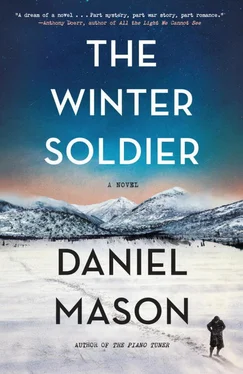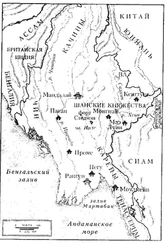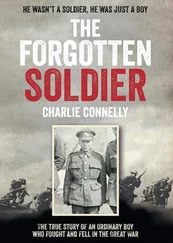“So you are burning our clothes for something unseen,” said the rabbi, shaking his head. “For a disease which has not been found.”
In January, he received news of his fifth redeployment, to a small village in the Galician Carpathians called Lemnowice. On the map it sat in a narrow valley, on the northern slope of the mountains, a finger’s-breadth from Uzhok Pass on the Hungarian border.
Uzhok, thought Lucius, a memory stirring. Uzhok: of course. For it was there a famous meteor had lit the sky two weeks before his father was shot in battle, an augury that had become part of family lore.
The Uzhok meteorite had been collected and brought back to the Natural History Museum in Vienna; a painting on the wall illustrated the event. Yes, he remembered this… he used to go there with his father. It was perhaps his only memory of sharing anything that didn’t have to do with the lancers, although, in a roundabout way (meteor-bullet-hip), it did.
But he couldn’t get there from Kraków—the war was in the way. He would have to travel to Budapest, they told him, and from there on to Debrecen, where he would board yet another train.
Given his disappointments, he didn’t believe it. He heard nothing for the next four days. But then, back in Vienna, in the Trains Division of the Headquarters of the Imperial and Royal Army, a Second-Level Clerk rose from his desk and, carrying a ledger, made his way to the corresponding Second-Level Clerk in the Medical Division, two flights down, returning with an order bearing a double-headed eagle stamp, which he presented to the First-Level Clerk in Trains for another stamp, then walked down four flights of stairs and out the building and through the snow to the Ad Hoc Office for the Eastern Theatre, where the order with both stamps was delivered to a corresponding Second-Level Clerk in the Transportation Division, who entered the name into a ledger, applied his own stamp, returned the order, wrote out a second order, and sent it down to the Head Clerk for Trains, in the Medical Division, Eastern Theatre, who, after a lunch of stale rye and egg sprinkled so heavily with paprika that it would stain the oily fingerprints he left in the margins of the page, rose, and with the ledger tucked inside his coat, went outside, stopping briefly to appreciate the beauty of the falling snow on a pensive putto above a doorway and on the glistening rooftops, before he crossed the boulevard to the military post office.
The route to Budapest passed back through Vienna. There, just across the Inner City from his home, Lucius only had time to buy a pickle from a station vendor before he had to board again. Three days later he was in the barracks in Debrecen, when he received the orders that he would take a final train to a place he had never heard of, called Nagybocskó, beyond another place he’d never heard of, called Máramarossziget, where he would be met by an escort from the hussars.
An escort from the hussars. An image then, of standing with his father in their ballroom, the great wings fluttering above their heads. Near Máramarossziget . He said the word slowly, like a child pronouncing the secret name of a fabled land.
To Feuermann, he wrote, At last.
The night before his departure, distracted by anticipation, Lucius was crossing the market square when a child dashed from a carriage and with a squeal ran straight into his legs. The street was slick with ice. He took a step forward to steady himself, caught his saber between his legs, and tripped, hearing his wrist snap when he reached out to break his fall.
For a moment he lay on the ice, clutching his arm. He waited for help, but the street was empty. Like a ghost, the child was gone, likely swept up by a mother afraid of the punishment for knocking down an Austrian officer.
Back in his quarters, he removed his greatcoat and undid the buttons of the cuff. The standard procedure would have been to get an X-ray, but he was already certain what had happened: a Colles’ fracture of the carpal extremity of the radius, the bone displaced dorsally, the sharp edge now palpable. Already it was so swollen that he had trouble opening the cuff. He cursed, furious at the child and his own incaution. He still had feeling in his fingers—at least there’d been no injury to the nerve. But the fracture would need to be reduced.
It would be safest just to report to the hospital, he knew. But he also knew that if he did so, there was no way he would be sent on to the front.
It could have been a joke. What does the Imperial and Royal Army call a one-handed medical student with no clinical experience?
Doctor.
He pulled lightly on his wrist, thinking that if he could bear it, he might reduce the fracture himself. But the pain was too great, and the muscle was in spasm. His will failed him. He needed help from someone strong.
He left the barracks and wandered toward town. He hoped to find a local doctor; even a veterinarian might do. But most of the signs were in Hungarian, and he couldn’t understand them. At last he saw the word Kovács, above a painted anvil— Blacksmith. Knocking on the door, he was met by a woman with a coat thrown over a nightgown. She stared at him suspiciously. In German she said, “We are full. No more billets. Already sleeping on the floor.”
“I don’t need a billet.” He lifted his arm to show his swollen wrist.
She disappeared inside and returned with a man of such shoulders and such a big, black beard that Lucius wondered if he had not stumbled upon Vulcan himself. Lucius showed him his arm, and the man whistled through his teeth. But he seemed completely unsurprised that an unknown soldier had appeared at his door in the middle of the night with a broken wrist. One of their boarders was a medic, he said, should he get him? Lucius shook his head—the medic would tell him to go to the hospital, he knew. He just needed a strong pair of hands.
The blacksmith led him to his worktable and lit the lamp. A pair of soldiers were sleeping on the floor. Speaking in a whisper, Lucius instructed him to grab the hand and forearm and draw them apart.
“That’s all?”
“That’s all,” said Lucius, though really he had no idea. His old textbook had an illustration that made it seem as if the bone simply popped back into place.
The man left, returning with a greasy cup of spirits. Lucius thanked him and downed it in a gulp. His eyes teared up; he presented his arm. The blacksmith was tentative at first, and because the muscles in the forearm were in spasm, Lucius had to instruct him to pull harder, then harder still. He could feel the edges of the bone scraping. He bore the pain until he couldn’t any longer, pushing away with a cry.
His head spun; he was afraid he would pass out. Mumbling gratitude to the blacksmith, he stumbled outside and into the cold air. He needed some kind of narcotic, not only to relieve him now, but also to endure the coming journey by horse.
The hospital was across the street from the barracks. The hall was dark, the soldiers sleeping. He passed a pair of nurses at the nursing station, but he acted as if he knew where he was going. Somewhere there would be a supply closet. He passed through another ward. At the far end, he found it, slipped inside, and rummaged until he found ampoules of cocaine and morphine, a syringe. He slipped them into the pocket of his coat.
The train was scheduled to depart at dawn. Back in his room, he broke the cover from a histology textbook, lined it with a shirt, and fashioned a rough splint. With his good hand, he set about packing his bags. He didn’t sleep—he was too worried that the swelling might cause compression of the nerve. Then he would have no choice but to report the injury, for they would have to open his wrist. He told himself that if he could still feel his fingers by morning, he’d press on. In any case, his destination was a hospital, where he’d get care if needed. There he could claim that the fracture had happened en route. And there, he decided, they wouldn’t send him back. He’d learn while it healed. When it was ready, he would work.
Читать дальше











